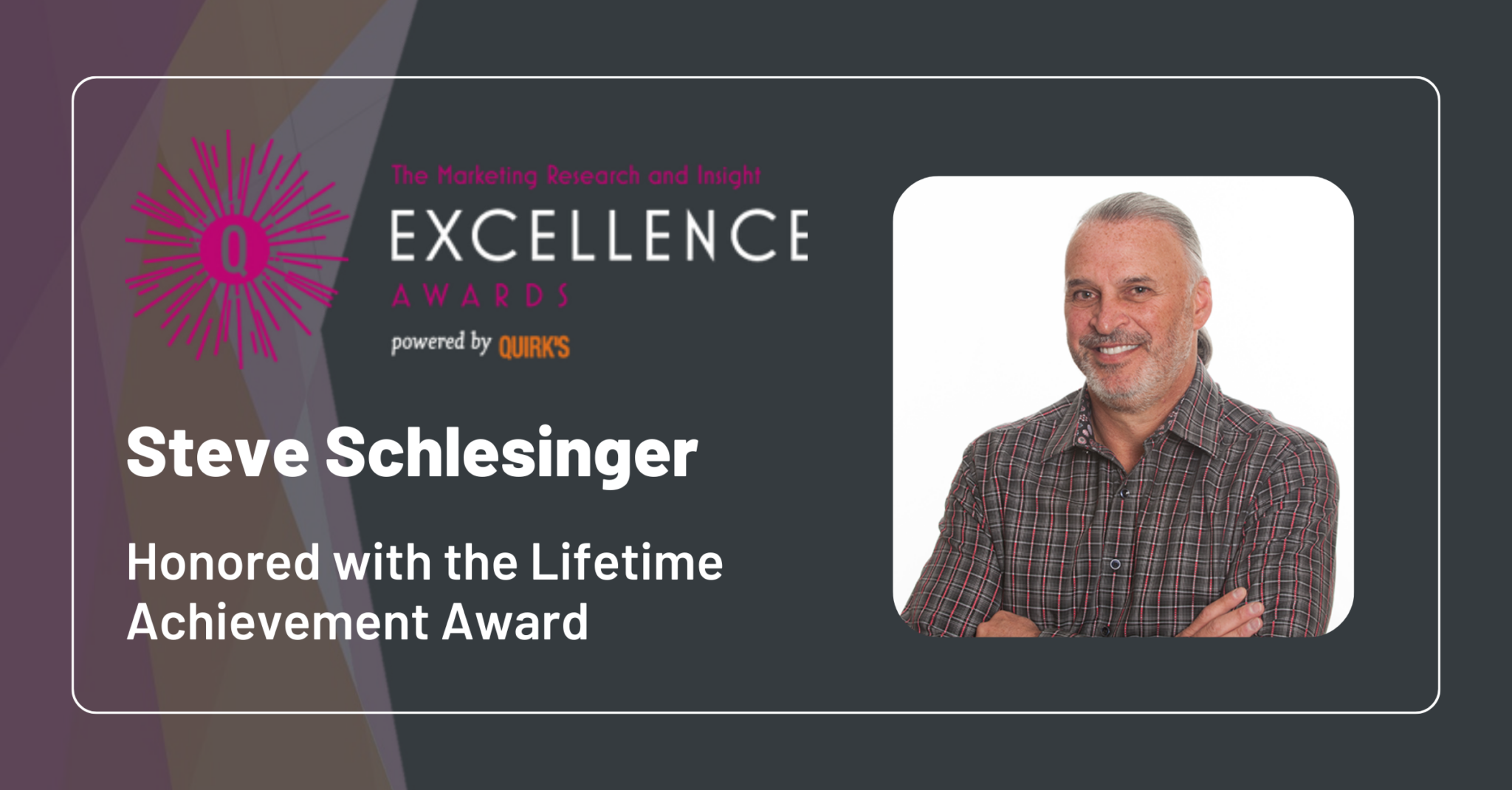Key Takeaways:
- Consulting with a local supplier partner (research houses/suppliers) prior to finalizing and formalizing the research RFQ is a key aspect for success
- It is crucial to make sure the local market is understood from a cultural and language perspective.
- Choosing moderators based on their language use, skills and cultural affinity with the participants/respondents makes a big difference and if not native, there is no need to panic! More important is their cultural sensitivity, their fine perception.
- Choosing interpreters who can accurately and sensitively capture the local environment in terms of language and culture will provide a great return on your research investment.
- Ideally, checking all translations to and from English with a local language expert to ensure idiosyncrasies and nuances are captured will help you identify any miscommunication or gaps in understanding.
How to Mindfully Master and Prevail over Linguistic Diversity in Global Research
In your quest for success in qualitative research, have you ever stopped to think about the importance of language?
To reach a new market and expand your business, it is advisable to have some key pointers in hand. A deep understanding of local cultural subtleties, variations, perceptions, and underlying meanings is crucial to acquiring precise and insightful information. But there are important challenges to face when managing multilingual markets – and communication, if not approached right, can easily become a pitfall.
So, what should you keep in mind when navigating the global arena?
The following guide focuses on the value and the complexities of language diversity.
Here are our top tips to help you take the global market by storm:
- Be attentive of cultural idiosyncrasies rooted in your understanding of the ways in which people communicate across various parts of the world
- Build rapport
- Use proper wording
- Localization is hyper-important. It minimizes abandonment and boosts participation
- Choose moderators with cultural understanding
- Handle concepts to be tested with the utmost precision and attention
- Practice empathy
1. Be attentive of cultural idiosyncrasies, rooted in your understanding of the ways in which people communicate across various parts of the world
Let’s face it – the landscape of language is ever-evolving, more and more so during recent years. The complexity and diversity of today’s multicultural societies are even reflected in the composition of workplaces (e-commerce, remote work…)
The expert in you may know that communication forms the backbone of research insights, both generated and analyzed, but there are clear-cut differences within cross-cultural settings that you should consider beforehand:
- Think Global, Act Local! When designing a research approach that adapts to the context of each market, don’t forget to capture and understand nuances. It’s key to identify your target audience within the market and understand the cultural nuances within that target audience.
- Expect different assumptions on project start dates, approaches, deadlines, methodologies, tools, and forms of communication. In the US, the UK or Germany, for example, information is typically conveyed directly and explicitly, relying heavily on verbal communication, while in Asian, African and South European cultures communication can often be more indirect. By creating a comprehensive picture of your target market, you’ll be able to work across cultures successfully, anticipating needs and expectations accordingly while ensuring that no details get lost in translation.
- Be cognizant of cultural norms in each market and keep in mind that there are countless variations in language: a carbonated beverage can be a soda, a pop or a coke depending on the region of the US where someone is from, and the word “oficina” can mean one thing in Portuguese and another in Spanish. And the list goes on…
- Don’t assume that language is the only barrier you may encounter. Pronunciation, style, tone and even gestures can affect how messages are interpreted and received – all essential to your study’s setup and outcome. As the adage goes… You say tom-MAY-toes, but I say tom-MAH-toes!
2. Build rapport
Language is essential to establish rapport and build healthy, long-lasting business relationships. Understanding the client or the respondent’s story through the lens of their cultural background will shed light on the best ways to help them.
But how much do you know about the subtleties, expressions, and connotations between languages and cultures?
- Make sure that you don’t just translate, but truly listen and adapt if necessary. Diversity must be heard!
- Get acquainted with local tastes, traditions and needs – brands, shops, social media, food, festivities and more, to ensure you make your target market feel as familiar and recognizable as possible.
3. Use proper wording
To uncover the best insights, make sure you ask the right questions in the right way. In some parts of the world, proximity does not guarantee cultural similarity. Spanish speakers from Latin America, for instance, do not understand each other in some cases due to different accents and vocabulary.
We cannot feel confident about the advice we give clients if we are not confident that we have talked to the right people… When “research gets it wrong”, the most frequent reason is… the wording of the questions! Take the Dewey defeats Truman example. The polls showed that Dewey was elected over Truman as president of the United States with such certainty that even the newspapers got it wrong. Expert analysis of the different polls that made the prediction showed the reasons for incorrect prediction were…. Improperly worded questions (74%)
To avoid misinterpretations and boost engagement:
- Make sure not only that the questions you ask address your objective but also that they are non-threatening, addressing the respondent in a way that will foster their cooperation.
- Make sure questions are clearly understood by both the interviewer and the respondent.
- Present an ‘opportunity’ to the respondent that they find interesting and attractive.
- Limit the number of individuals for whom the language of the group is not their first language and exclude those who are uncomfortable expressing themselves.
4. Localization is hyper-important. It minimizes abandonment and boosts participation
Localization will help you connect with your target market by communicating in a way that respondents can both understand and relate to. This creates a sense of belonging.
Remember that…
- Localization goes beyond words, so you’ll need more than just translating materials into native languages. Harnessing local partner knowledge will help you understand variations from one country to another in terms of culture, values, social trends, technology, economy, and more.
- A Word of Caution: some questions or topics are considered inappropriate in certain regions and countries. A wrong turn in wording can have a huge impact on the recruitment process and during fieldwork. In some countries, even if the same language is used, there are protocols and modalities that you should not ignore. And, if approached wrong, they could even become offensive. Take these examples:
- In several Middle Eastern countries, for instance, there is a lot of stigma around mental health. In LatAm, you will need to ¨tropicalize¨ the screener to adapt its language as well as the ways in which you address certain themes and issues. Or Germany, where questions about sexuality or ethnicity need to be phrased in a sensitive way to allow a soft landing and ensure representation. Some markets are open on focusing inclusion, respect for diversity and gender-perspective, while in others, like Russia or Japan, there are issues or topics that cannot be discussed freely. Being aware of these in advance will help you approach and anticipate any hurdles.
To sum up: know your market! While some topics are to be handled with respect or caution in certain countries, in others you can be free and light-hearted.
5. Choose moderators with cultural understanding
Respondents often quote local sayings or cultural references to express themselves. Today, for a meaning not to be lost in translation, native moderators are not necessarily required, but rather professionals who have experienced these varieties, have perceived them, learned to respect them, give them value and relevance.
Here are some considerations to accomplish this:
- Work with experienced moderators that capture subtleties, expressions, and connotations of the market in question.
- Don’t underestimate tribes and slang! There are many ways of calling things. Interviews will not be carried out successfully if the moderator does not understand or capture cultural references. Take Gen Z, a great example of how sometimes we do not need to cross a geographical border for language to change. Language can also be used to divide, separate, mask or illuminate… whether it’s generationally, culturally, etc. And if, within Gen Z, we talk about cultural tribes, well, we could even say that language is sometimes the way that individuals use to appropriate their freedom!
- Moderators don’t need to blend in with respondents (e.g., be from the same country or same generation) but rather ask the right questions, pick up on the slang, cultural references, and understand that they may be dealing with different idiolects. Even if they don’t understand a specific lingo, they must still give it relevance and probe further to understand the language of the interviewed respondent.
6. Handle concepts to be tested with the utmost precision and attention
When it comes to stimuli or testing concepts in multiple markets, several issues can arise – and they are generally governed by language.
Most of the time, clients oversee translation and deliver stimuli that has already been translated. This means that, more often than not, the local researcher is not in charge of translating the material that will be tested to avoid biasing.
Some tips and tricks to get it right:
- Make sure local teams have enough time to look at and evaluate the material to be tested. If there are language errors or inappropriate wording for some markets, it will directly impact the study’s outcome.
- Involve a translator with local knowledge, not only of the subject, but of the linguistic twists and idioms of each market. If materials are poorly translated or do not adapt to the market, and moderators find themselves in field testing these concepts, then participants will not be able to evaluate them correctly. This may lead to a bit of chaos, as the client would probably need to do urgent work in the middle of the field to review materials, compromising the study and the budget. While this may seem unlikely to happen, situations like these have occurred in Fortune 500 Companies more than once.
- Keep in mind that messages are valued differently across the world. While some concepts can be swiftly translated between languages and cultures, others simply do not make any sense if we do not previously know its cultural weight or meaning. Remember that local dialects may have quite different nuances. If not approached right, this could result in dire consequences when exploring & assessing concepts and analyzing data.
7. Practice empathy
Language and identity are connected and constantly collaborate with each other. Showing empathy through language is a bridge that builds fruitful relationships.
Be curious and try to step into the other person’s shoes – it can do wonders, like expressing someone else’s perspective and understanding what’s motivating it.
Finally, a word to the wise: the differences between cultures are reflected perfectly in their languages. So, honor the diversity of language and use the power of empathy as an ally in every interaction!
Need more help with your global research project?
Get in touch with our experts.
Request a consultation










 10 Minutes
10 Minutes 












